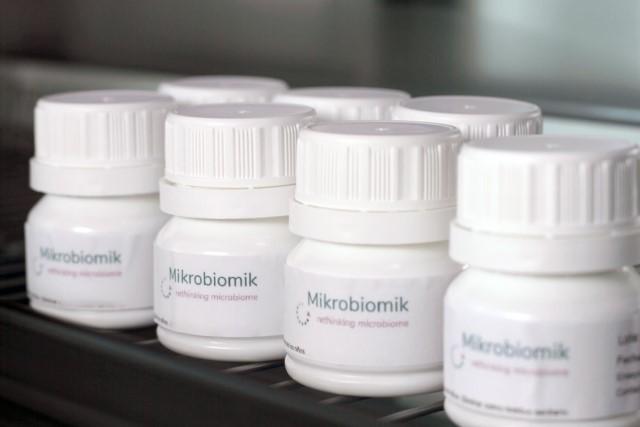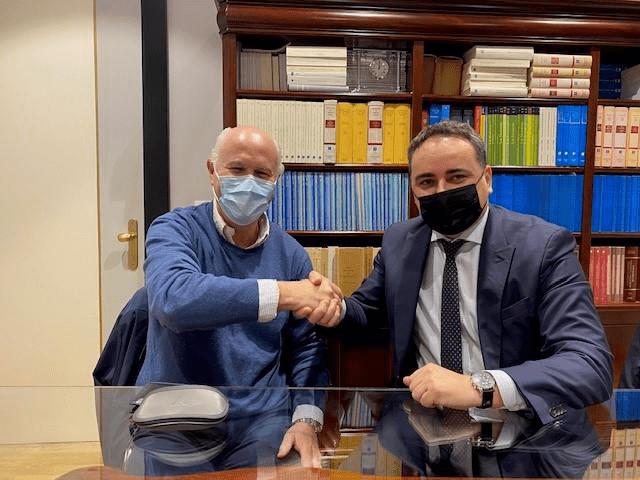- The Bizkaia-based company has launched its phase III clinical trial with the aim of becoming the first company in the world to market the first biological drug based on intestinal microbiota, in the indication of recurrence due to Clostridioides difficile (ICD).
- The biopharmaceutical company, based at the BIC Bizkaia bioincubator, is also supplying its investigational biological drug MBK-01 under a special drug, also known as compassionate use.
- The frequency of CDI in Spain is not sufficiently characterised, but the high and increasing use of broad-spectrum antibiotics are factors that favour the growth of this disease. In the case of the United States, more than 30,000 people die each year from intestinal infection due to Clostridioides difficile bacteria.
- Mikrobiomik has started a new round of financing with the aim of scaling up the company, both in terms of human resources and production capabilities.
Mikrobiomik, a Basque biopharmaceutical startup, has launched its phase III clinical trial ICD-01, in more than 20 Spanish hospitals, with the aim of becoming the first company in the world to market the first biological drug based on intestinal microbiota in the indication of Clostridioides difficile recurrence in the EU.
The Biscayan biopharmaceutical company, in its desire to help all those people suffering from a serious disease for which no effective curative treatments are available, is in the final phase of the clinical development of MBK-01, the first biological drug based on intestinal microbiota.
Mikrobiomik aspires to lead the paradigm shift of designing therapeutic solutions based on the human microbiome. In this sense, Dr. Juan Basterra, CEO of Mikrobiomik, states that they want to “fulfil the dream of being the first company worldwide to market in the European Union the first biological drug in the indication of Clostridioides difficile infection and under the innovative format of faecal microbiota capsules for administration in a single intake of 4 capsules, avoiding invasive procedures with risk of adverse effects and high cost, such as nasoduodenal tube or colonoscopy”.
Currently, there is no gut microbiota-based drug on the pharmaceutical market. For this reason,” Basterra continues, “we consider that there is a need that we are obliged to fill in order to build an effective and safe therapeutic alternative for patients suffering from recurrent Clostridioides difficile infection who do not respond to antibiotics.”

Increase in cases of intestinal Clostridioides difficile infection
Clostridioides difficile infection is becoming increasingly common worldwide. Although in Spain the number of deaths is relatively low because the strains are not hypervirulent, in the United States the opposite is true, with more than 500,000 cases per year resulting in more than 30,000 deaths and a healthcare cost of around 2 billion dollars.
The disease is characterised by severe episodes of diarrhoea and is the most common infectious cause of nosocomial diarrhoea. One of the main reasons for this is the increased use of antibiotics, which leads to an intestinal imbalance, better known as dysbiosis, thus favouring the emergence of the bacterium Clostridioides difficile. This bacterium is the main cause of hospital-acquired diarrhoea and 20% of diarrhoea and colitis associated with antibiotic use. However, ageing and comorbidities are also causes to be taken into account.
“Currently,” explains Basterra, “75% of patients respond to antibiotic treatment, but 25% have multiple recurrences that lead to increased morbidity and mortality and, in some cases, death.” In these patients, faecal microbiota transplantation has demonstrated efficacy of around 90% in the absence of relevant side effects and is endorsed as the most effective therapeutic option with the highest level of evidence in the treatment of Clostridioides difficile recurrence.

MBK-01, the first biological drug based on intestinal microbiota
Once they have started their phase III trial on Clostridioides difficile recurrence, Mikrobiomik “has set out to develop a new generation of drugs based on the therapeutic potential of the human microbiome”, says Basterra.
In this sense, Basterra affirms that “thanks to our research efforts and technological innovation, in a short time, we have achieved both GMP (Good Manufacturing Practices) certification for our production facilities, and authorisation from the Spanish Medicines and Health Products Agency (AEMPS) to launch a Phase III clinical trial in patients with Clostridioides difficile recurrence with our first drug under investigation and leading product, MBK-01, in which our challenge is to demonstrate its greater efficacy and safety compared to fidaxomicin, the gold standard in the treatment of Clostridioides difficile recurrence”. If everything progresses adequately,” explains Basterra, “we will be able to start marketing the drug in the first half of 2024“.
In the words of Dr Javier Cobo, Head of the Infectious Diseases Department at the Ramón y Cajal Hospital and coordinator of the clinical trial, “this is the first clinical trial in the world to compare faecal transplantation in capsules with fidaxomicin”.
For the moment,” says Dr. Cobo, “we already have the first patient recruited at the Hospital Ramón y Cajal and we hope that, with the relaxation of the inclusion criteria and the authorisation for the administration of a 5-day pre-treatment, recruitment will be much faster“.
In short, “this is an innovative project that will be the best solution for many patients,” says Dr. Cobo. For this reason, he stresses that “this research is very welcome as it will allow hospitals to have a standardised product for the entire national territory and will contribute to improving the health of patients”. “We are very motivated and grateful for the initiative of companies like Mikrobiomik,” he adds.

Mikrobiomik looking for investment partners
After a long research process and with the clinical trial already in phase III, Mikrobiomik has begun the search for a new round of funding that will allow it to advance in the implementation of new clinical trials in indications such as non-alcoholic steatohepatitis, bacterial multi-resistance to antibiotics, as well as in certain cancers that do not respond to immunotherapy. Recently,” says Basterra, “Seed Capital Bizkaia has entered Mikrobiomik’s capital, acquiring 3% of our shares”.
Now,” Basterra concludes, “we are in the process of looking for new investors to make the company grow, both in terms of production resources and human resources”. “The idea is a first capital round of 2-3 million euros to reach our next milestones and, in June, when we have at least satisfactory intermediate results from our phase III clinical trial, we will enter into a larger financing round with the aim of scaling up the company and becoming a benchmark at European level”, he adds.
About Mikrobiomik:
Mikrobiomik is a Basque biopharmaceutical company born to research, develop and manufacture drugs based on the human microbiome. It aspires to be the first company in the world to market the first gut microbiota-based medicine in the EU. In addition, it aims to lead a paradigm shift that will involve designing therapeutic solutions based on the human microbiome, through excellence in its processes, empathising with patients without the availability of effective treatments and, always, from the perspective of collaborative work with all stakeholders in the sector.

